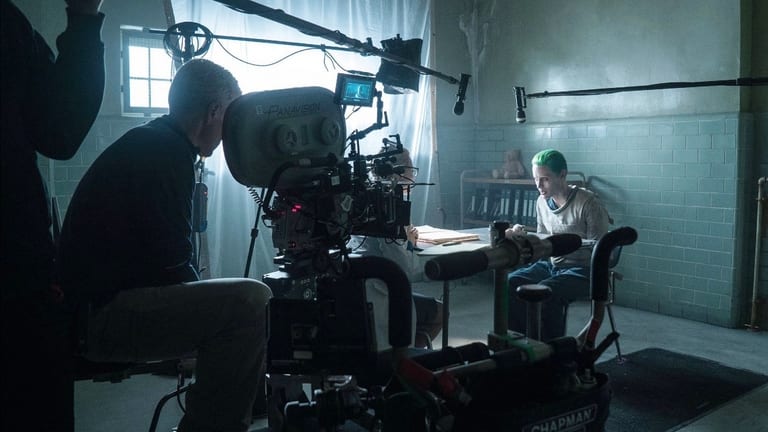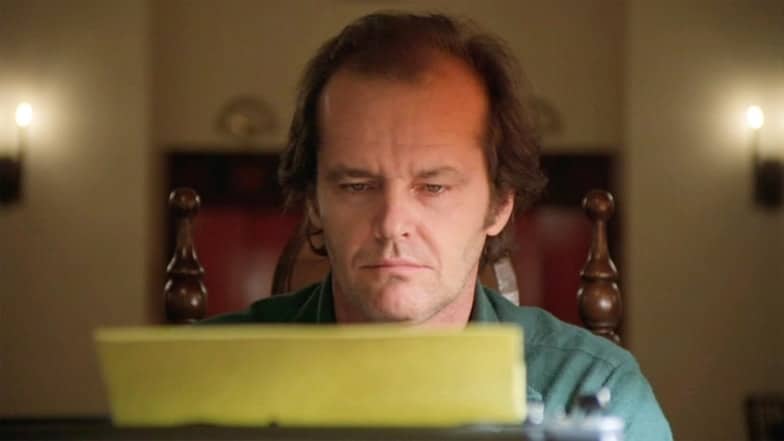More and more colleges and universities are offering academic pathways for screenwriters. This means a screenwriting degree is definitely something aspiring filmmakers and screenwriters will naturally consider at some point. It could be a master’s or a bachelor’s, a major, or a minor. Regardless, a screenwriting degree comes with its own set of opportunities and obstacles.
When it comes to attending medical school, a prospective doctor has no say in the matter if they plan on getting a job. Lawyers attending law school is no different. At the end of the day, countless professions see a formal educational background as an unquestionable staple for employment.
However, screenwriting is not just any profession; it is an art form. The process of filmmaking is carried out differently by each individual filmmaker. Such a personalized career choice leaves many people in the film industry questioning if adding a scholastic appendage to their resumé is worth their time.
Ultimately, whether or not you should obtain a screenwriting degree depends on your specific circumstances. When deciding if a screenwriting degree is for you, leave your favorite screenwriters out of the question. It doesn’t matter if they did or did not get a screenwriting degree. Rather, try to consider if what’s in-store is tailored for you and your creative endeavors.
To ease the decision-making process, we’ve provided 10 pros and 10 cons of doing a screenwriting degree below.
We’ll look at some of the most burning questions when it comes to screenwriting degrees:
- What Can You Do With a Screenwriting Degree?
- Are Screenwriting Classes Worth it?
- Do You Need a Screenwriting Degree?
- And What Are the Alternatives to a Screenwriting Degree?
All this will help hopefully make a tricky decision slightly less tricky. To go or not to go? That is the question.
Pros of Doing a Screenwriting Degree:
1. Connections
Big-name film schools like New York University (NYU), University of Southern California (USC) or the American Film Institute (AFI) often have affiliations with local production companies. This includes internships with some of the film industry’s top screenwriters, directors, production companies and studios.
Additionally, these schools tend to have successful alumni that stay connected to the school. This gives many students the opportunity to attend famous filmmakers’ lectures, seminars, workshops and more. If getting in touch with the big leagues is a goal of yours, then getting a screenwriting degree may be worth your while.
Another advantage of the connections offered by obtaining a screenwriting degree is the schools’ film festivals. Noteworthy personnel in the film industry often attend these student showcases, scouting for the next big thing. While nothing is guaranteed, you never know who could stumble upon your film and pick it up.
2. Community
Another pro of doing a screenwriting degree is having an instant community. By being a member of an institution, you are automatically placed in the vicinity of other people who share your same interests. Thus, you are able to build relationships, share ideas and learn with those around you. This can be very helpful for people who have a hard time finding others to collaborate with.
Having a community will not only help you while you’re doing your screenwriting degree, but it will also be advantageous for the years to come. You may create lifelong friendships and partnerships. Ultimately, you may even find yourself co-writing with one of your peers down the line.
Above all, one of the best parts about having a community is the support. Screenwriting is a tough business. When times get hard, being involved with others who are facing similar struggles is not only comforting, but also motivating. It reminds you that you will face rough patches, but so will everyone else, so there’s no real reason to give up.
3. Production Resources
Doing a screenwriting degree will provide you with a lot of resources. Out of these resources, one of the most useful includes a thorough introduction to production. Many screenwriting degrees have required courses in cycle production, thus ensuring that you are prepared for all things development, casting, pre-production, shooting and post-production.
Additionally, besides obvious writing instruction, screenwriting degrees usually contain a curriculum that covers other professional concerns, such as legal issues, agents and the Writers Guild of America. This information is especially useful if you foresee yourself making an adapted screenplay in the future.
Having this knowledge is a huge advantage, not just for yourself as a filmmaker, but also for anyone who is hiring you. Being familiar with the factors of production will definitely be appealing to possible employers and collaborators. Because this kind of experience is hard to come by without a screenwriting degree, it is surely a plus worth considering.
4. Notable Mentors
Another indirect perk of getting a screenwriting degree is being personally linked up with the school’s faculty. Spike Lee, Matthew McConaughey, Kal Penn and Kasi Lemmons are just a handful of famous entertainment giants who have all taught courses at some of America’s top film schools. Being taught by the best of the best is hard to get access to without attending an institution.
Students in screenwriting often work hand-in-hand with faculty who have tackled the highest accolades of their field: Oscars, Emmys, Golden Globes, NAACP Leadership Awards, the Humanitas Prize, the Pulitzer Prize, D.I.C.E. Awards, and many others.
Most importantly, many faculty members who aren’t retired from film are looking to do more than just lecture and grade projects. They are also considering students as employees, or referring them to other professionals. Whether you’re just looking to learn or also hoping to connect, getting a screenwriting degree may prove beneficial just from the notable mentors alone.

5. Reputable Experience
Getting a screenwriting degree surely looks good on paper. It shows possible employers that you put the time, money and effort into this profession. When doing a screenwriting degree, a lot gets put on the line. This decision is inherently exemplary of your dedication to your career.
Not only is it generally impressive to have, but a credible and valid background in screenwriting is also an indication that you know what you’re doing, or you at least know how it’s done. You’ll most likely have a portfolio, possibly internship experience and other pieces of evidence that show you didn’t just sleep through your courses, you learned valuable information.
While a degree alone won’t be enough to carry you to the Academy Awards, the knowledge you gain along the way will hopefully aid you in producing quality work. It is this work that will help you get to where you want to be. The question, then, is whether you’d prefer to do it on your own, or if you want the guidance of a film school to give you that extra push.
6. Screenwriting Degrees Give You Specified Instruction
If you’re still searching for your voice in terms of filmmaking, getting a screenwriting degree may help you find your writing style. When obtaining a degree, you’ll be guided through different techniques and methods of writing, all having the possibility to help you build your skills and foundations as a writer.
A screenwriting degree, like any degree, has built-in specific instructions. You’ll be required to take courses that may or may not seem important to you. You’ll do projects that have to abide by certain guidelines. For some people, being told where to look is better than wandering about. This is one of the main reasons why getting a screenwriting degree is a personal decision.
You may, however, find yourself in the position where the classes you take have a substantial influence on your writing. Maybe learning step-by-step is exactly what you want/need. Regardless, receiving specified instructions is extremely influential in ensuring your knowledge is more well-versed.
7. Opportunity for Filmmaking
Getting a screenwriting degree obviously means that your portfolio will fill up with new scripts and screenplays to show off. Additionally, it may also mean you’ll get the opportunity to make your own films along the way.
Graduating with a screenwriting degree and then having your own films to showcase will definitely be enticing to possible employers. Not only does a screenwriting degree demonstrate that you’re knowledgeable in your career, but having actual films with your writing in it is the best way to show everyone what you’re capable of.
If you’re having a hard time starting the filmmaking process, or you don’t even know where to start, doing a screenwriting degree can help you get on your feet. As previously mentioned, many schools have production resources available to their students. Knowing these assets are available to you could be exactly what you need to get moving.

8. Background in Theory and Craft
Screenwriter William Goldman once stated simply that “Screenplays are structure.” Hence, the passion and ideas brewing in your head are, of course, the most necessary aspects of your writing career, but having a background knowledge in the theory and craft of screenwriting won’t hurt either.
Being able to format your spec scripts will come in handy when presenting yourself professionally. Getting a screenwriting degree from a good school will keep you up-to-date on all the basic elements of proper storytelling for film. You want to be able to properly translate your story onto a printed page.
If you can’t get your points across through your script, most companies won’t bother funding your film’s production. This is why a background in the theory and craft of screenwriting is so beneficial, and why many film schools make certain their graduates are educated in it.
9. Transferring Your Work onto the Screen
Writing for film and television is different than writing for literature or periodicals. For instance, a standard novelist doesn’t write dialogue in the same way a screenwriter writes dialogue. Moreover, neither write dialogue in the same way a journalist writes dialogue.
There are different approaches towards writing that keep your audience’s attention. Within differing mediums, the methods used when writing out these details change. Thus, getting a screenwriting degree would be the best way to ensure your writing is adaptable to the screen.
What makes a screenwriting degree so unique is that it teaches you how to transfer your work onto the screen. A standard writing or English degree won’t prepare you for this kind of specialty. If you’re absolutely sure that writing for film and television is what you want to do, then a screenwriting degree will be the best to arm you with the tools you need.
10. Consistent Advisement
As a writer, it is often hard to spot your own shortcomings. For you, the person who writes the scripts, envisioning how scenes will play out on the screen is easier to do as opposed to someone who can’t see inside your mind. Therefore, in order to know if you’re presenting your ideas correctly, you generally need an outsider’s perspective.
One of the biggest pros of getting a screenwriting degree is consistent advisement. Constructive criticism is scary, yet extremely beneficial feedback that every artist must face in order to grow. With consistent advisement, writers are able to understand and see their films through someone else’s eyes.
When doing a screenwriting degree, you’ll have teachers who very well may be professional screenwriters themselves. Getting advice and critiques about your work from people who have likely stood exactly in the same place as you is a huge perk.

Cons of Doing a Screenwriting Degree:
1. Very Expensive
Possibly the biggest con of doing a screenwriting degree is the financial aspect. The price for higher education continues to go up each year. With most film programs and, therefore, screenwriting degrees, residing at private universities and institutions, you’re ultimately looking at a grotesque amount of money.
Film schools like AFI and the California Institute of the Arts (CalArts) cost about $30,000 per year. Schools like NYU and USC are well over $50,000 a year. When it comes down to it, if you have this much money to spend or take out in loans, why not just use that money directly to finance your own film?
If you’re well-off and financials don’t concern you, deciding whether to do a screenwriting degree or not gets less complicated. However, if you’re not wealthy, or just not willing to spend tens or hundreds of thousands of dollars on what is ultimately a piece of paper, the cost of a screenwriting degree is a huge deciding factor.
2. Screenwriting Degrees Are Limited in Schools
Another con concerning doing a screenwriting degree is access. While screenwriting degrees are becoming more popular in colleges and universities, they still aren’t available in every state. Additionally, if you really want to get the bang for the buck, there are only a handful of schools that offer all the pros we listed above.
The film industry is a locale-based business. Online degree programs can seem attractive, but you should spend some time considering if spending thousands of dollars on an online degree is worth it. This is especially if the connections and the reputable experiences are what you’re really looking for.
Essentially, your choices for getting a screenwriting degree that would prove most advantageous are limited to a few schools in select regions. Maybe you’ve always wanted a reason to relocate to New York or Los Angeles, but again, if money is an issue, a screenwriting degree may also be more of a problem than a solution to your creative endeavors.
3. A Screenwriting Degree Comes With Curriculum Restrictions
As previously mentioned, many screenwriting degrees come with required courses and coursework. If prerequisites aren’t your thing, you may find your inspirations and motivations being deterred by classes you have no interest in.
Additionally, you may find yourself being forced to adapt to a structure you didn’t sign up for. Group projects with classmates could actually mean butting heads with partners who perceive film differently than you do.
Many screenwriting degrees have more required courses than personally picked electives. For instance, learning how to write an hour-long television drama may not be your area of interest, but USC’s screenwriting MFA requires the course for their year-one students’ first semesters.
If you’re someone who desires creative freedom and an individualized learning environment, you can’t get more individual than learning through your own expertise.

4. You Already Have Free Access to Local Film Communities
Another con of doing a screenwriting degree is the availability of local communities without the cost. Why pay for something you could get for free? There are countless organizations, workshops and groups that don’t require you to be a degree-seeking student to be apart of.
If being involved in a film community is something you’re worried about, you don’t have to move to the most expensive cities in the country just to find them. Organizations like Filmmakers Alliance, Stage 32 and Raindance all offer networking meet-ups, film festivals, and access to industry partners for anything between $0 to $50 a year.
Choosing the no-screenwriting-degree route can ultimately save you tens of thousands of dollars. This is money you could instead use to develop your own film, because what’s even more impressive than a screenwriting degree is making a quality film without one.
5. Not Necessarily More Useful Than Other Degrees
Another con to a screenwriting degree is its usefulness in comparison to other degrees. A screenwriting degree won’t automatically make you a better candidate for a job against someone with a standard writing or English degree. What matters is your own personal abilities, not the pathway you chose to present them through.
Thus, don’t think a big-name school will buy your way into the film industry. Just as countless filmmakers have gone to film school and graduated with screenwriting degrees, countless others haven’t. Often, you’ll hear that members of the entertainment business come from a variety of educational backgrounds. It’s not their degrees that connect them, just their passion for the art.
Additionally, if you’re still feeling out what kind of writer you aspire to be, there’s no rush in narrowing down your studies to only screenwriting. Moreover, you can actually gain substantial inspiration from countless writing professions. Literature, creative writing, journalism and general film studies are all degrees that won’t hinder your chances of becoming a good writer.
6. Time-Framed and Graded “Creative Freedom”
There’s nothing like trying to get some quality writing done whilst a nagging deadline is eating away at your train of thought. The dreaded deadline is a common enemy of every type of writer, but when it comes to creative writing, it can have a huge impact on the final product.
Getting a screenwriting degree directly indicates that you’ll be following the schedule of a university or institution. If you find that proceeding in a leisurely fashion is what produces your best writing, or if you just don’t like adhering to time restrictions, setting yourself up for projects with strict deadlines may not be your forte.
Additionally, some people find themselves aiming for a screenwriting degree but not quite ready in terms of inspiration. Whether you’re doing a 3-semester MFA or a four-year bachelor’s degree, you will eventually be required to have thoroughly completed scripts.
This goes without saying, but you’ll also be graded on these assignments. Some people work well under pressure, but for others, it can just be detrimental to getting their creative juices flowing.
At the end of the day, you know yourself best. Abiding by someone else’s time standards and getting academically assessed for your art may or may not seem worthy of your time.

7. A Screenwriting Degree Doesn’t Make Your Work More Impressive
As previously mentioned, what’s even more impressive than doing a screenwriting degree is making a quality film without one. You’ll write scripts in school, but you could’ve also made an equally admirable film without spending that extra cash.
With a willingness to put in the hard work needed, anyone can become a successful screenwriter. This is regardless of what degree they hold. Nobody is going to judge you on your educational background if your script is good. However, if you spent $200,000 on a screenwriting degree and try to sell a not-very-good script, you could easily get the colder shoulder.
Taking on a bunch of student debt just for the image of a degree won’t help you become a good screenwriter, and it won’t make your work magically more impressive. There’s a lot of effort that must be put into a script, but this effort doesn’t have to involve a screenwriting degree to still pay off.
8. Online Resources are Plentiful
This is arguably the second biggest con when it comes to doing a screenwriting degree. With so many online screenwriting resources (including yours truly!) available to you, there’s no real urgency to get a screenwriting degree.
Sundance, and even WikiHow all have web pages dedicated to giving you the run-down on all things screenwriting. Expert advice from industry professionals is a benefit you don’t need a screenwriting degree to get access to. You can start right here! We strive to provide the best insight and advice through our articles, for example, so that you can learn and improve your craft without spending a penny.
Furthermore, online courses that require less commitment and money might entice those who want a taster before taking the plunge.
Sometimes, simply learning more is what sparks an interest in doing a degree. When it comes to screenwriting, do as much individual research as you can before actually making the commitment. If all the internet resources still can’t quench your thirst for knowledge, then a screenwriting degree is something to consider.
9. Doesn’t Limit Your Competition
In conjunction with con #5, doing a screenwriting degree doesn’t limit your competition. People from around the globe, from all types of educational backgrounds, are trying to make it in the film business.
Moreover, if you’re trying to go international, an American film school degree may prove even more invaluable. In most professions, a degree is only a precondition before the competitive workforce. There’s a reason why college and “the real world” are often contrasted against each other.
Many people have degrees, but you have to have a spark outside of your academia to really dazzle employers. From this point of view, a screenwriting degree is no different. In any business, it takes knowledge and then some to really stand out from the pack.

10. A Screenwriting Degree is an Unnecessary Step
In closing, Werner Herzog once said that “academia is the death of cinema. Somebody who has been a boxer in Africa would be better trained as a filmmaker than if he had graduated from one of the “best” film schools in the world. All that counts is real life.”
Ultimately, many people view a screenwriting degree as an unnecessary step. The cost, coursework, and time are all arguably and equally dispensable. The last thing you’d want is to spend up to four years of your life on a degree that you feel you could’ve done without.
As mentioned before, much of what is offered by obtaining a screenwriting degree is available online. Connections and collaborations can be made through other, less costly organizations. What employers care about most is what you can do.
The bottom line: if you have talent, nobody will turn you away solely because you don’t have a screenwriting degree.
- What did you think of this article? Share It, Like It, give it a rating, and let us know your thoughts in the comments box further down…
- Struggling with a script or book? Story analysis is what we do, all day, every day… check out our range of script coverage services for writers & filmmakers.
This article was written by Brenna Sheets and edited by IS Staff.
Get *ALL* our FREE Resources
Tackle the trickiest areas of screenwriting with our exclusive eBooks. Get all our FREE resources when you join 60,000 filmmakers on our mailing list!



I don’t know where you got your numbers for the fees from but AFI is roughly $65,000 in fees per year alone, they give you an estimate of around $90k a year including all your living expenses etc – I wish it was $30,000 haha!
Interesting
Very useful; Thank you.